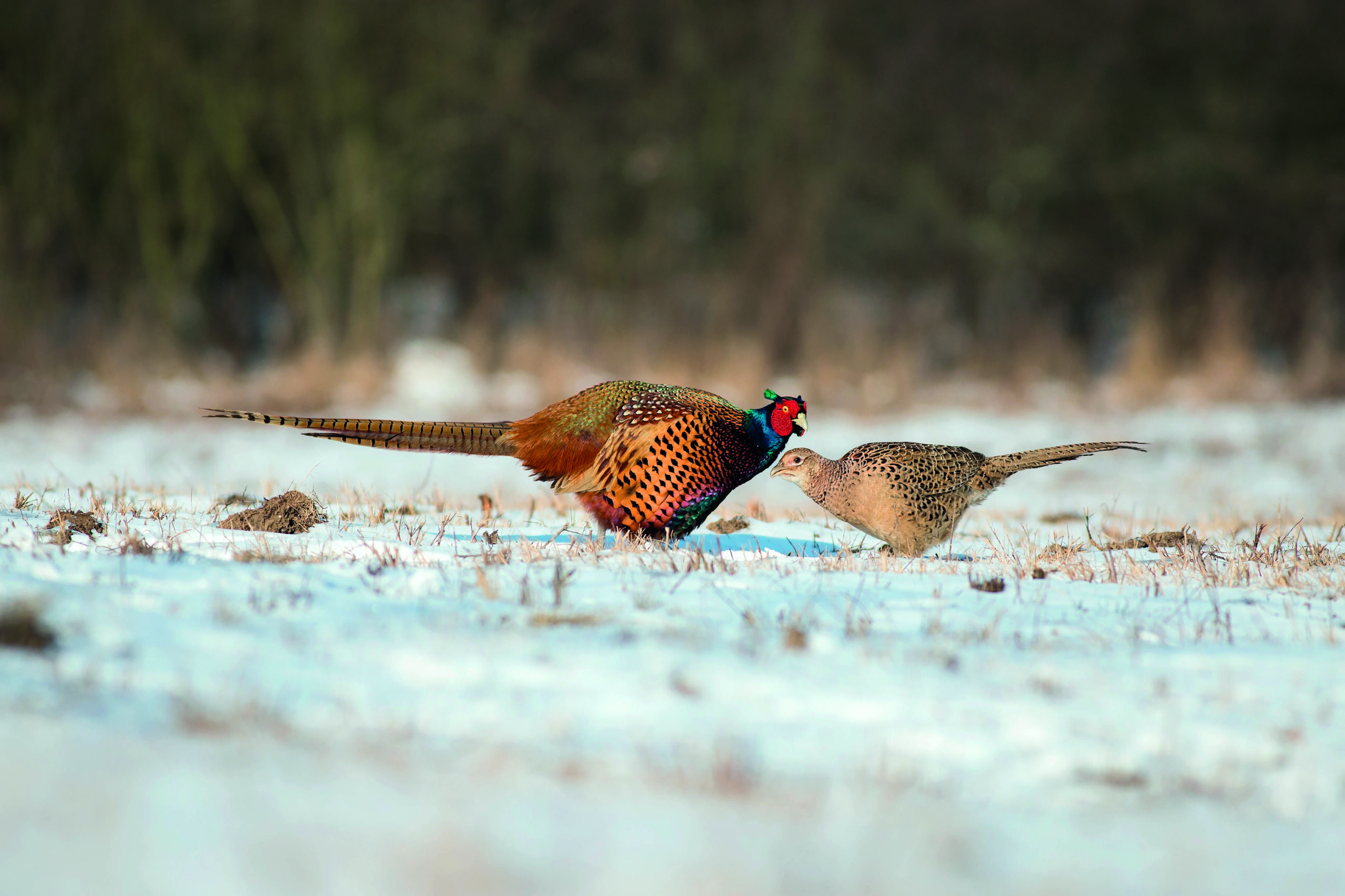Freezing temperatures are impacting on wild birds
November brought the coldest night for a decade and the falling temperatures can adversely affect gamebirds, but it’s not all bad news.

The end of November was the coldest period in more than a decade, with temperatures as low as -9.4°C in Shap in England, -8°C in Eskdalemuir in Scotland and -6°C in Whitchurch in Wales. Wednesday 29 November was the coldest night recorded since 2010.
These cold conditions can heavily affect gamebirds’ movement, habitat, predation and feeding. Furthermore, freezing temperatures from Siberia to Holland all affect bird numbers and behaviour in Britain. Pheasants and partridges are reasonably well hardened to the dry cold but extended snow coverage inhibits their ability to scratch for food, which can adversely affect numbers.
Richard Negus, a wildfowler, author and conservationist based in East Anglia, told ST: “I’ve noted little effect of the cold weather on driven shooting. However, the warmer temperatures in Greenland and Iceland may have led to the later migration of pink-footed geese on the Broadland Marshes. They arrived over a month later this year. Ducks have been very variable due to the extreme wet weather; there are many more habitats for them to exploit so they are not in the usual array of scrapes and ponds”.
Simon Garnham, an ST contributor who runs a shoot in Essex, said: “The cold weather is better for my shoot because it pulls birds into the game covers. It’s also superb on the marsh, with migratory birds pouring into the east at the moment. There are really good numbers of quarry species such as teal, wigeon and pintail to be found as well as rarer sightings such as the short-eared owls.”
Lindsay Waddell, former National Gamekeepers’ Organisation chairman and upland keeper, said: “Really cold weather allied to snow is a bit of a double-edged sword. Freezing open-standing water makes some duck work difficult, but brings home birds that may have been straying. It may also force the good numbers of woodcock here further south as things tighten up in Scotland and the north of England.
“Although many grouse keepers will have been stopped by the snow cover trying get grit out, at least things have dried up and the really hard frosts will be killing off the strongyle eggs in the cecal droppings.
“It’s a time for feeding all wild birds and not exploiting the conditions too much.”








